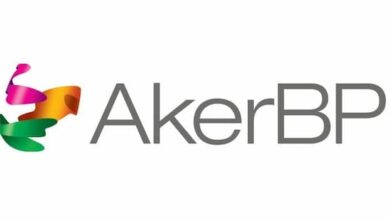Industry’s global nature means culture, language, regional laws are relevant in QHSE reporting
By Kinga E Doris and Anne-Séverine Jacquot, Pride International
Have you reviewed your accident investigation policy recently? Probably not. Or maybe you know it by heart. Perhaps you wrote it or contributed amendments to it over the last 10 years and made sure that the amended policy was distributed to QHSE managers from Angola to Zimbabwe.
Usually, the same policy, translated into multiple languages, is used throughout a company that conducts business in diverse jurisdictions worldwide. The rationale is simple; The objectives of the investigation are the same regardless of location, type of accident and parties involved. The investigator will establish the facts leading to the accident, identify the underlying causes and finally find ways to prevent re-occurrences.
However, the procedures used in this well-established process must vary from jurisdiction to jurisdiction. Otherwise, the company – in addition to the usual consequences of accidents, such as property loss, medical expenses, lost income and decline in employee morale – could face civil and criminal causes of action by local authorities and by its own employees. The legal reality of an accident scene more often than not will look as follows:
- A European Union (EU) citizen.
- Working on a rig owned by a BVI company.
- Located offshore West Africa.
- For a US-based/NYSE-listed client.
Each of these jurisdictions must be carefully considered when the investigator evaluates its obligations with respect to confidentiality and data protection, local administrative regulations and law enforcement investigation since it raises a myriad of legal issues, some of which are identified and discussed below.
EU Employee
Data protection. The European Union imposes strict rules pertaining to disclosure of personal data. Concepts such as “reasonable expectation of privacy” do not come into play. Even seemingly innocuous information such as marital status and general employment history are protected. The law covers all types of identifiable data the company may have collected during the course of the employment relationship. A simple accident report sent overseas that contains the name, job title and type of injury of an European Union citizen constitutes a violation of European Convention, as well as of constitutional law of many European countries.
If all personal data are removed and the report focuses on underlying facts and types of damage, the report is equally meaningful without the risk of breach of data protection laws. If the company decides to issue and transmit a full report, i.e., one with personal data, a written consent from the employee is required. The consent must be given voluntarily, and the employer may not exude undue pressure on the employee.
Confidentiality. During the investigative process, e-mails contained on the company server are often collected and analyzed to evaluate if there was a breakdown in communication leading to a misunderstanding. Any correspondence, including e-mails, may not be disclosed. The employee may consent to provide/disclose the e-mail. However, such consent may not suffice when the correspondence also involves a third party.
National insurance. The accident investigation team always includes representatives of the risk department who keep the insurance companies informed. What is often forgotten is timely notice to national insurance of the employee’s country of origin. Delay in providing such notice may irrevocably prejudice the rights of the EU employee. As a result, the employer may have to compensate the employee for any forfeited benefits.
Drug and alcohol testing. As an indirect consequence of EU privacy laws, an employee may legally refuse to be subjected to medical evaluation, including drug and alcohol tests. Such refusal may not be construed as a breach of employment obligations and may not be used against the employee in any way. As a result, any company policy that mandates that EU employees submit to drug testing in effect requires that such employees waive their privacy rights and, therefore, violates the European Convention, as well as the constitution of many European countries. In most European countries, medical information can be gathered only by state agencies.
EU Employer
Health and safety committee. Cooperation with the EU employer’s health and safety committee is mandated by law, and its duties, responsibilities and authority are statutorily prescribed. The EU health and safety committee has much broader powers and scope of influence than its US counterpart. In a country such as France, companies must continually cooperate with the committee (in France, the committee is known as Health and Safety and Working Conditions Committee) and always use it as an interface to communicate the safety rules applicable to French payroll employees. If this requirement is not fulfilled, the safety rules – which might have been otherwise communicated through offshore presentations and drilling training programs – are not legally binding on employees of French entity. The company will be deemed not to have implemented any rules.
The committee must be immediately notified in the event of accidents and be involved as quickly as possible in the investigation process. Even an inadvertent delay may be construed as bad faith and an attempt to conceal incriminating information.
Works Council. The company’s Works Council must remain involved with the Health and Safety and Working Conditions Committee in the safety rule formation process. The council must also be informed in the event of industrial accidents involving employees and must be involved in the investigation.
Criminal liability. In EU countries, a company’s legal representatives (directors and officers) may be prosecuted for criminal negligence. Criminal liability does not require that the legal representative actually commit a breach of duty. The negligence is presumed whenever an accident occurs, and evidence exists that not all measures were duly taken and/or legally implemented to protect employees from harm.
Although the proceeding is criminal in nature, the burden of proof is on the defendant. In order to circumvent criminal liability, the legal representatives delegate their duties to the local operations or QHSC manager. However, the delegation of duty will be considered effective only if the local operations or QHSC manager has been granted the financial and legal resources, as well as sufficient manpower, to fulfil the duties.
Local Authorities
Police. A company representative arriving at the accident scene may be surprised to find that the area has been designated a crime scene. In many jurisdictions, an event is presumed to be a crime until the investigation proves otherwise. The police will conduct interviews with employees. Many jurisdictions in which drilling companies operate do not guarantee right to counsel and do not grant the right to refuse to give testimony. This may be difficult to accept, particularly to US employees who think that the US constitution, particularly the Fifth Amendment, travels with them like a US passport.
The presence of counsel may of course be granted as a discretionary decision of the officer in charge. The need for an interpreter and the desire for efficient cooperation may be provided as a good reason for the request. Any mention of foreign laws may have a contrary effect. Because statements are signed in the local language, the need for the translator is evident, and the authorities may agree that the interpreter, who is clearly required, is also a legal advisor. Although US constitutional rights do not apply to investigations by foreign authorities, the Foreign Corrupt Practices Act (FCPA) applies to US citizens and foreign employees of US companies worldwide.
FCPA. The FCPA, in general, prohibits the promise, payment or giving of anything of value, either directly or indirectly, to any official of a foreign government for the purpose of influencing any act or decision in his official capacity, or inducing him to use his influence with a foreign government to assist in obtaining or retaining any improper advantage.
Under the FCPA, “government official” means any official, officer, employee or representative of any non-US government department, agency or instrumentality (including any government-owned or -controlled commercial enterprise, such as a national oil company), or any outside consultancy group engaged thereby, or any official of a public international organization or political party, or candidate for political office outside the United States.
Under the FCPA, the police, navy and local marine authority officials, as well as doctors and paramedics of state institutions, are government officials. Drillers often operate in jurisdictions where corruption is rampant and government officials solicit illegal payments to look the other way or simply finish the investigation so that the rig can resume operations. These requests are illegal bribe solicitations under FCPA.
A payment, or a promise of payment (or other benefit), violates the FCPA. Penalties include monetary fines and imprisonment. It is important to communicate to employees and all other persons acting on behalf of the company that no circumstances, no matter how dire, will constitute a defense to an FCPA violation.
Witnesses
Culture. Western accident investigators are used to witnesses who know their rights and understand the process. The witness can, at least to a degree, identify with the interviewer and understand the procedures and the goals of the investigation. They are comfortable with the routine of the investigation.
For many third-world country nationals, particularly from formerly war-torn regions, the arrival of investigators accompanied by security guards is a disturbing experience. A traumatized witness will not be able to provide valuable information to an investigator. The witness’s paralyzing fear of repercussions and retaliation will distort the testimony or even cause the witness to deny any knowledge of underlying facts.
It is therefore crucial to interview witnesses in a way that does not bear any resemblance to an interrogation. The investigator must get to know the witness in an informal setting. A successful interview will take the form of a casual conversation with pointed questions veiled as improvised remarks. In some cultures, lower-level employees are likely to believe that their testimony must match what their superior said. It is therefore important to interview witnesses without the presence of supervisors.
Language. Not all witnesses speak the language of the interviewer. It is crucial to interview in the native language of the witness, then translate the interview. An interview through a translator, although less effective from the investigatory point of view, can also be used. In some jurisdictions, an interview conducted in an employee’s non-native tongue is illegal regardless of the witness’ foreign language proficiency. In many jurisdictions, even if not illegal per se, the testimony is inadmissible in a court of law even if the employee voluntarily signed a statement in a foreign language.
Law. The EU non-disclosure principles also apply to internal investigations. The employee’s refusal to provide information may not be used against the employee in any way. The employees must be given notice of the interview. They have a right to be accompanied by a personnel representative, a colleague or a lawyer during the interview. The interview must be conducted in the mother tongue.
Personal Injury Statutory benefits vs civil court damages
Some jurisdictions allow the employee to file a claim for damages in addition to receiving statutory benefits. In some jurisdictions, the employee must choose between statutory benefits and civil damages. It is always useful to calculate the amount of statutory damages in accordance with applicable statutes. These amounts could assist in determining a settlement offer to the employee or to the employee’s survivors.
Release
The execution of a binding release proves to be far more challenging than the negotiation of the settlement amount. The applicable rules and customs are very counterintuitive, particularly to an attorney or a human resources professional familiar with laws governing inheritance. They may encounter legal systems where women (widows or mothers of deceased accident victims) cannot execute binding agreements or situations where the tribal chief is the proper representative to represent the estate.
Summary
The accident investigation policy is a document that summarizes policies and procedures pertinent in the event of an accident investigation. Their actual relevance in the field must be carefully analyzed bearing in mind the legal, cultural, linguistic and geopolitical aspects of each investigation.
This article is not intended as legal advice. Readers are urged to consult their own counsel for detailed guidance on the legal issues discussed.
Kinga E Doris is chief counsel – global operations & strategic planning and Anne-Séverine Jacquot is senior counsel – global operations, both for Pride International.
This article is based on a presentation at the 2009 IADC Health, Safety, Environment & Training Conference & Exhibition, 3-4 February, Houston, Texas.




